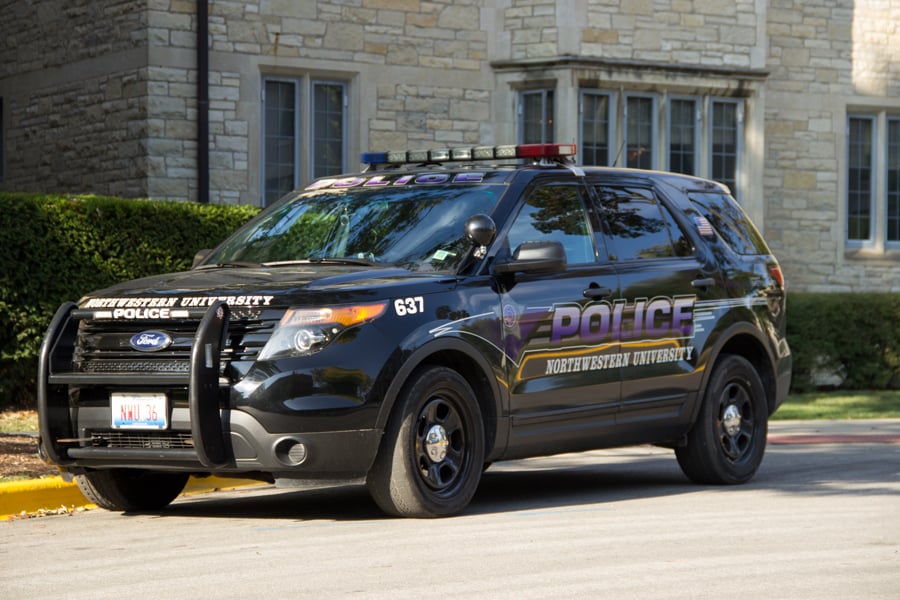Following 30-day trial, University Police to outfit all officers with body-worn cameras
(Marcel Bollag/The Daily Northwestern)
University Police is now moving forward with a plan to outfit all officers with body-worn cameras by the end of the calendar year. The plan follows a 30-day trial of the cameras conducted in June.
September 21, 2017
After conducting a 30-day trial for body-worn cameras, University Police plans to outfit all officers with the cameras by the end of the calendar year, deputy chief of police Gloria Graham said.
Five officers volunteered for the original June trial, after UP and the Evanston Police Department received a federal grant for the implementation of body-worn cameras, Graham said. The $139,277 grant covers the cost of 160 cameras for both police departments to share, Evanston police Cmdr. Joseph Dugan said.
After the trial concluded, Graham said the officers gave no negative feedback and found the cameras “easy to use.”
Graham said UP plans to purchase the cameras by Oct. 1 and implement them for all 47 officers by the end of the year. She said it will take time to get each officer equipped and install the necessary software.
“In the 21st Century Policing documentation that came out during Barack Obama’s administration, one of the recommendations … is body-worn cameras,” Graham said. “So we decided to test it and see if we thought that it was something that both our community members and officers thought would be beneficial here at Northwestern.”
The task force on 21st Century Policing was issued by President Obama in 2014 in response to instances of tension between police departments and their communities, including the death of Michael Brown in Ferguson, Missouri.
Weinberg senior Sara Halloran said though body-worn cameras are a step forward for police transparency, they are a “stop-gap measure for controlling policing.”
“Police can conveniently have them turn off or break when they don’t want their behavior recorded,” said Halloran, a former Daily columnist.
Dugan said the cameras are important for both UP and EPD to build community trust.
“We work with University Police a lot,” Dugan said. “We’re in the same community and we have a lot of the same views as far as community policing philosophy and transparency.”
In addition to greater transparency, Graham said the cameras are helpful for ensuring officer safety and for gathering evidence. With the cameras, officers can rely on the videos rather than people’s memories, Graham said.
Halloran said the implementation of body-worn cameras could improve police conduct, but will not provide a solution to police brutality.
“It is definitely something that will keep police behavior in check,” Halloran said. “It will make police think twice, but all that really does is tone down their behavior, not actually change attitudes in policing.”
Email: [email protected]
Twitter: @allymauch


